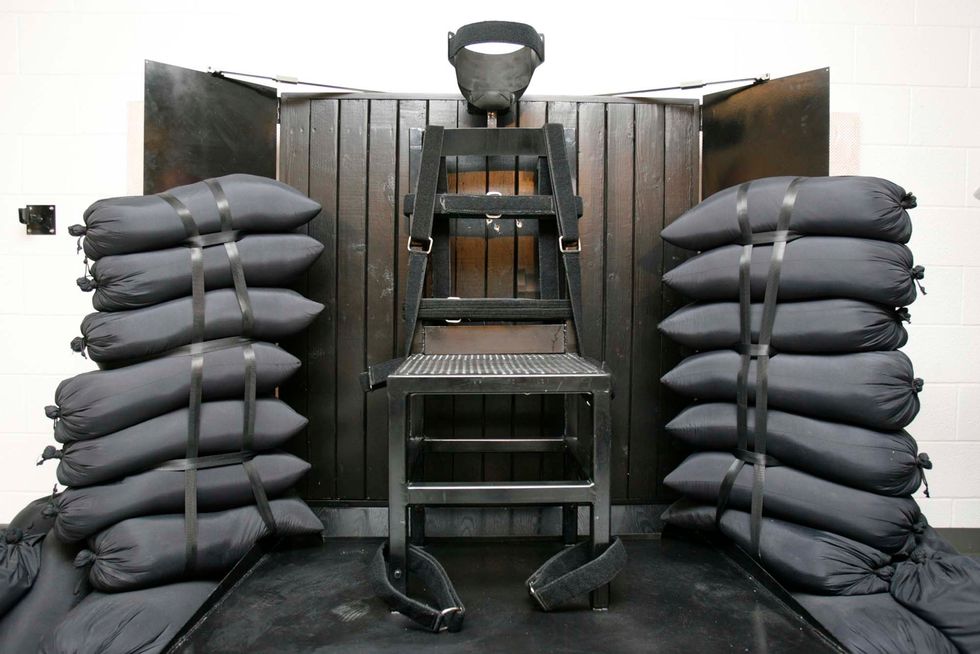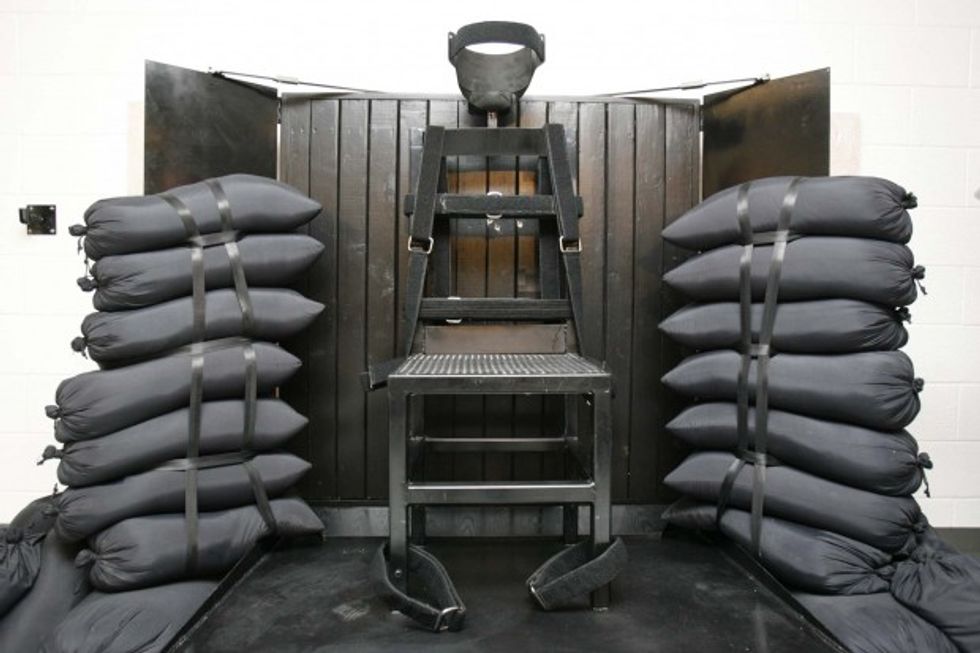
FILE - This June 18, 2010, file photo shows the firing squad execution chamber at the Utah State Prison in Draper, Utah. (AP Photo/Trent Nelson, Pool, File)

Story by the Associated Press; curated by Oliver Darcy.
—
SALT LAKE CITY (AP) — Utah has passed a bill that would make it the only state to allow firing squads for carrying out a death penalty if there is a shortage of execution drugs.
The 18-10 vote by the state Senate on Tuesday comes as states struggle to obtain lethal injection drugs amid a nationwide shortage.
The bill's sponsor, Republican Rep. Paul Ray of Clearfield, touted the measure as being a more humane form of execution. Ray argued that a team of trained marksmen is faster and more humane than the drawn-out deaths that have occurred in botched lethal injections.

Opponents disagree, saying firing squads are a cruel holdover from the state's wild West days and will earn the state international condemnation.
Whether it will become law in the conservative Western state is unclear: Utah Gov. Gary Herbert, a Republican, won't say if he'll sign the measure. His spokesman, Marty Carpenter, did issue a statement this week acknowledging that the method would give Utah a legitimate backup method if execution drugs are unavailable.
It would reinstate the use of firing squads more than a decade after the state abandoned the practice.
Utah is one of several states to seek out new forms of capital punishment after a botched Oklahoma lethal injection last year and one in Arizona that took nearly two hours for the condemned man to die.
Legislation to allow firing squads has been introduced in Arkansas this year. In Wyoming, a measure to allow firing squads if the lethal drugs aren't available died. In Oklahoma, lawmakers are considering legislation that would allow the state to use nitrogen gas to execute inmates.
Utah's proposal keeps lethal injection as the primary method of execution, but it allows for the state to use firing squads if the state cannot obtain lethal injection drugs.
States across the country have struggled to keep up their drug inventories as European manufacturers have refused to sell the lethal concoctions to prisons and corrections departments because of their opposition to the death penalty.
Texas' supply will be used up if the state goes forward with two lethal injections in the next two weeks. The Texas deadline is the most imminent, but other states are struggling, as well.
The head of Utah's prison system has said the state does not have any lethal injection drugs on hand and would have to obtain some in the years ahead if an execution were to be scheduled.
States turning to alternative drugs have been faced with legal challenges from inmates, something Ray has said Utah could sidestep if it has a backup execution plan in place.
Utah lawmakers, concerned about intense media attention, stopped offering inmates the choice of a death by firing squad in 2004. A handful of inmates on Utah's death row were sentenced before the law changed and still have the option of going before a firing squad after their court appeals are exhausted.
Utah's last execution was by a firing squad in 2010, when Ronnie Lee Gardner was executed by five police officers with .30-caliber Winchester rifles. The state has carried out three executions by firing squad since the U.S. Supreme Court reinstated the death penalty in 1976.
The Washington, D.C.-based Death Penalty Information Center, which opposes capital punishment, says a firing squad is not a foolproof execution method because the inmate could move or shooters could miss the heart, causing a slower, more painful death.
One such case appears to have happened in Utah's territorial days back in 1879, when a firing squad missed Wallace Wilkerson's heart and it took him 27 minutes to die, according to newspaper accounts.
—